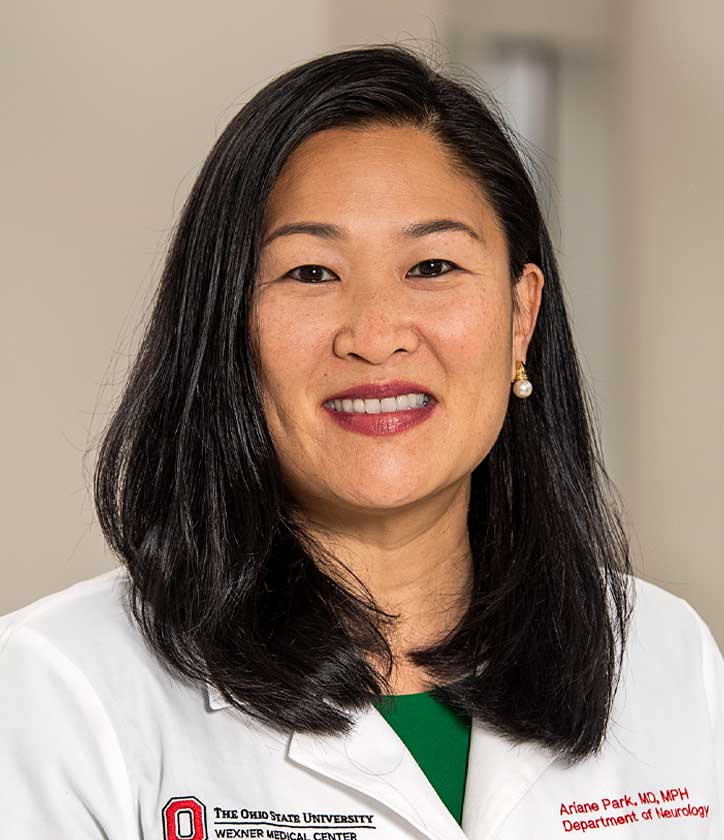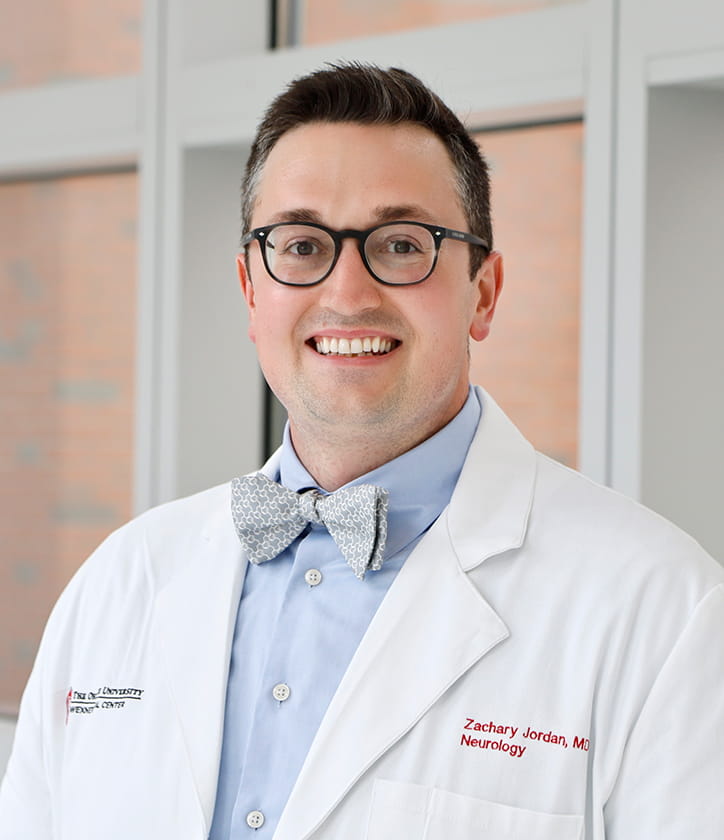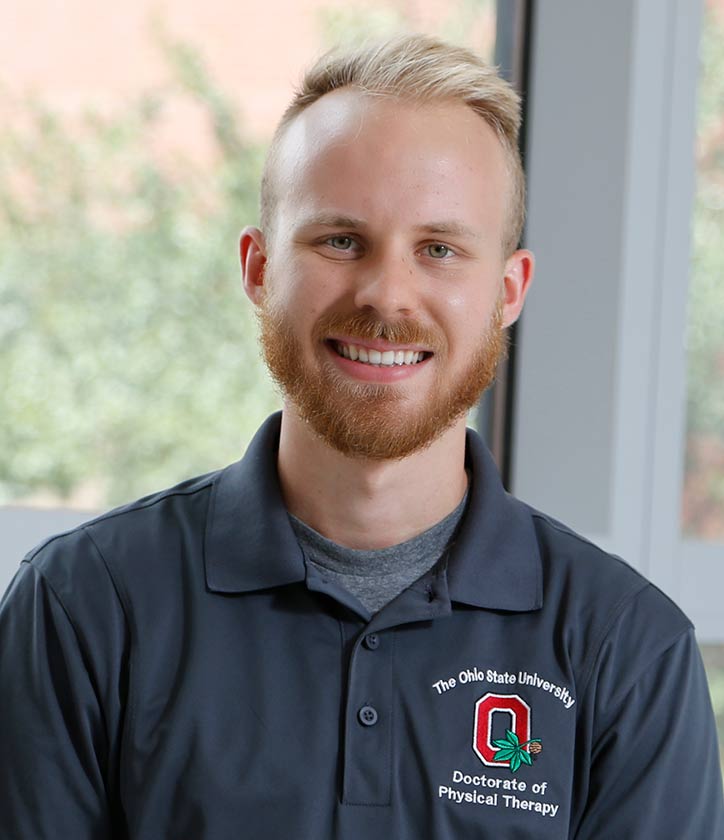Parkinson’s disease (PD) is usually not diagnosed until after age 60 because symptoms don’t appear until more than 50% of the nerve cells that produce dopamine in the brain are destroyed. The symptoms usually begin quite gradually, often on only one side of the body. As the disease progresses, it usually moves to both sides.
Common symptoms of PD involve motor skills
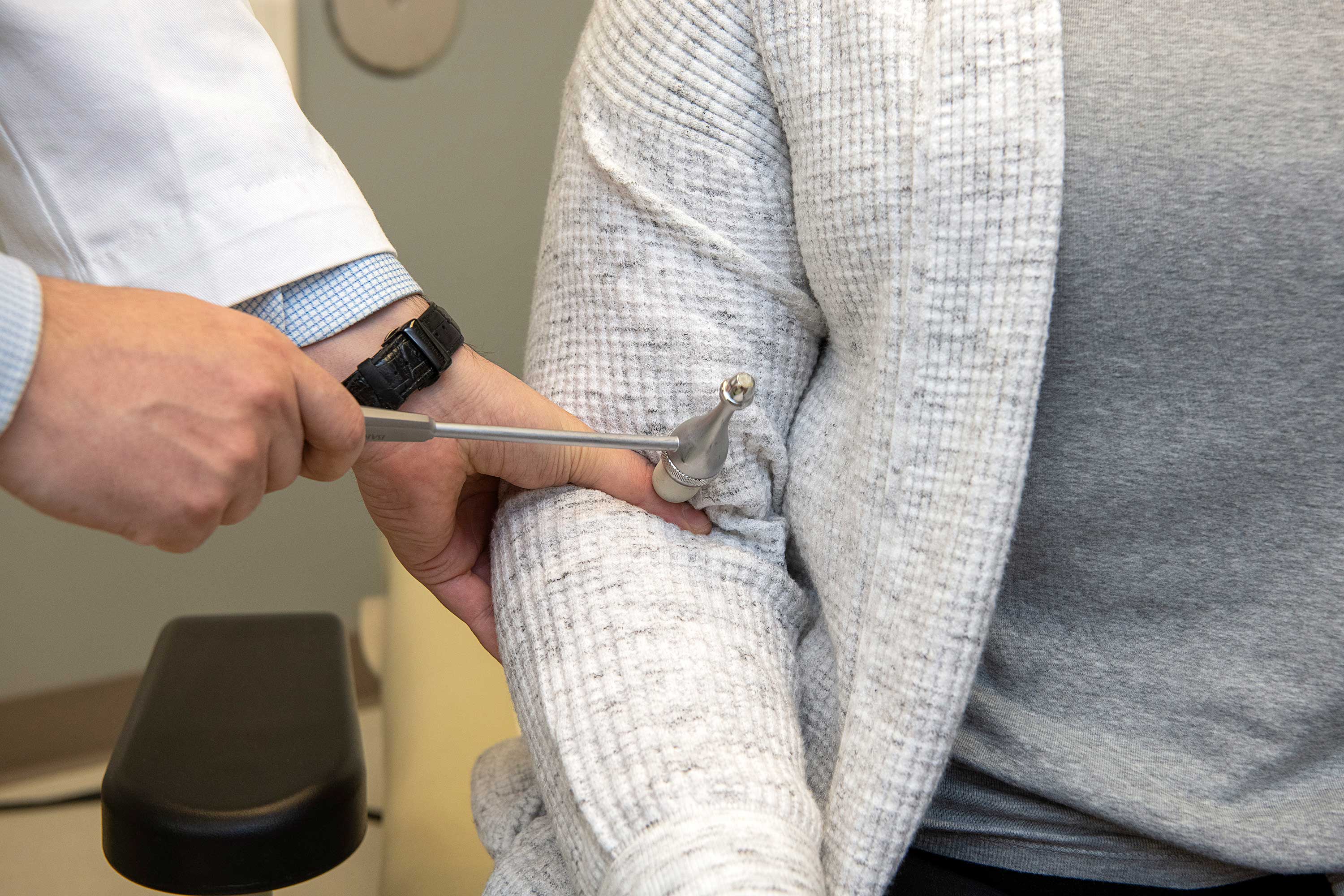
An expert in Parkinson's disease will conduct an exam evaluating a person's movement and muscle tone. Those with Parkinson’s disease may have:
- Tremor
- Involuntary twisting in your torso, arms, legs, or face (called dyskinesia)
- Rigidity or stiffness in your neck, arms or legs
- Slowness of movement (called bradykinesia)
- Poor balance and coordination
Not every person with PD develops the same symptoms.
Other symptoms may include trouble chewing or swallowing. Often, your voice may weaken, and you may not be able to create variations in volume or emotion, making you sound monotone.
Because PD is a movement disorder, many people are unaware of additional non-motor symptoms that often occur with the disease, including:
- Cognitive changes – problems with thinking, word finding and judgment
- Depression and anxiety
- A loss of smell or reduced sensitivity to odors
- Vision problems
- Fatigue
- Constipation
- Lightheadedness
- Hallucinations and/or delusions
- Changes in sex drive or impotence
- Sleep problems – difficulty falling or staying asleep or vivid dreams
- Excessive sweating, drooling
- Urinary issues – frequency, urgency or problems emptying the bladder
- Constipation
As symptoms worsen, simple tasks can become more difficult, making PD a frustrating disease. This is exactly why The Center for Parkinson's Disease and Other Movement Disorders has experts from so many different medical specialties to ensure your best possible physical and mental health.
How is Parkinson’s disease diagnosed?
Diagnosing Parkinson’s disease is sometimes difficult, since early signs may mimic other movement disorders or other diseases and there is no blood or laboratory test for PD.
Before making a diagnosis, your doctor will discuss your health, medical and family history and conduct a complete physical and neurological exam. Most people develop PD due to an interaction between genetics and environment. In some cases, PD symptoms are triggered by certain drugs or related to structural abnormalities in the brain, so you doctor will want to know about all of your medications, as well as review any brain imaging.
If not Parkinson’s disease, could it be a different movement disorder?
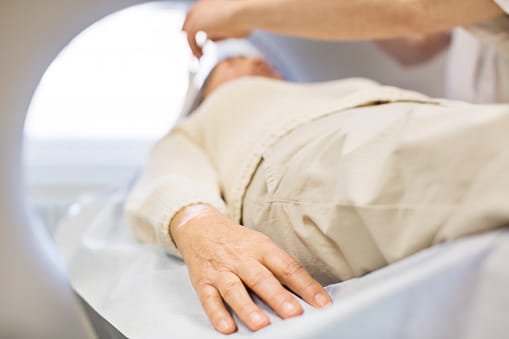 Imaging studies, such as a computed tomography (CT) scan, magnetic resonance imaging (MRI) or a dopamine transporter SPECT scan (DaTscan), may be used to rule out other disorders with similar symptoms.
Imaging studies, such as a computed tomography (CT) scan, magnetic resonance imaging (MRI) or a dopamine transporter SPECT scan (DaTscan), may be used to rule out other disorders with similar symptoms.

